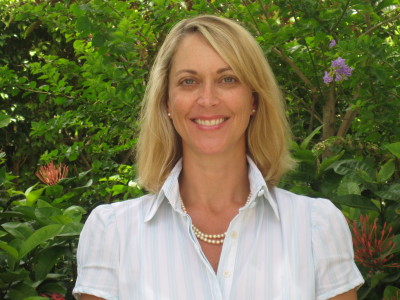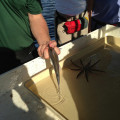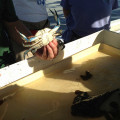NSU Newsroom
SharkBytes
Horizons
This version of NSU News has been archived as of February 28, 2019. To search through archived articles, visit nova.edu/search. To access the new version of NSU News, visit news.nova.edu.
This version of SharkBytes has been archived as of February 28, 2019. To search through archived articles, visit nova.edu/search. To access the new version of SharkBytes, visit sharkbytes.nova.edu.
NSU Research Spotlight: Fresh Water Usage
Coastal communities in Florida are facing a range of issues related to the impacts of climate change and development, and social science research plays a critical role in identifying stakeholders, understanding their experiences and perspectives, and engaging them in effective decision-making processes on the personal, professional, and community-wide levels. Robin Cooper, Ph.D., Assistant Professor in the School of Humanities and Social Sciences (SHSS), with funding from the Florida Department of Environmental Protection and the National Oceanic and Atmospheric Administration (NOAA), has been working with the Rookery Bay National Estuarine Research Reserve (RBNRR) over the past two years in its effort to establish one or more mechanisms for working collaboratively with the community on adaptive management decision-making in the context of fresh water usage. The purpose of this qualitative research project is three-fold: 1) to understand attitudes and behaviors related to water usage among residents in the Rookery Bay region; 2) to explore how community members have engaged in water-related decision-making in personal and professional contexts; 3) to describe community members’ experiences of receiving and responding to educational information related to water conservation. Multiple stakeholder interviews have led to research findings which will now inform the development of initiatives to increase wise water use decision-making, such as an education, outreach, and collaborative decision-making processes that include diverse community stakeholders. Several doctoral candidates in the Department of Conflict Analysis and Resolution (DCAR) have assisted with the research as part of Cooper’s research team.


